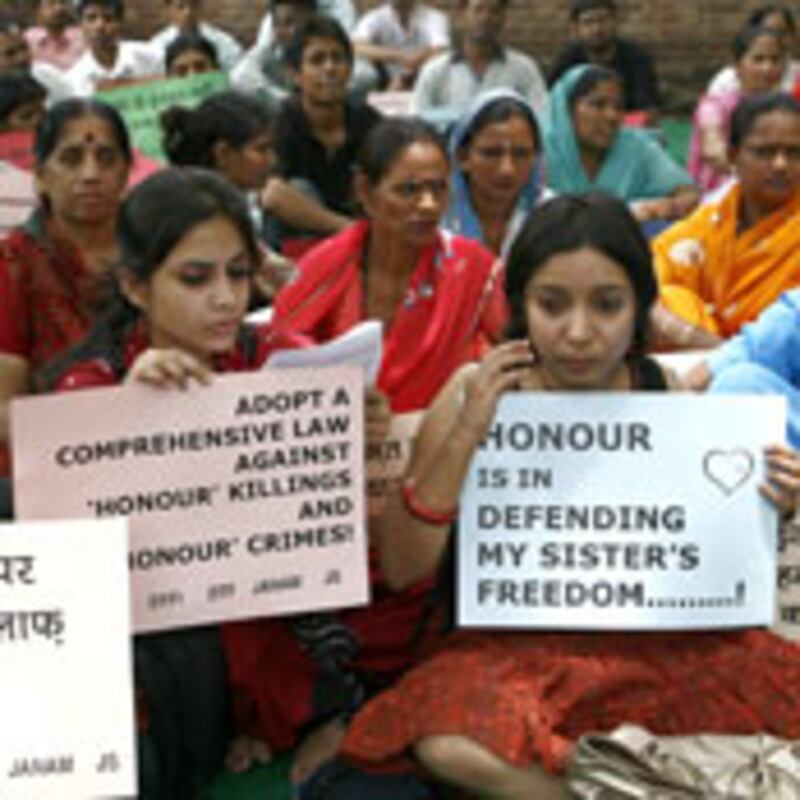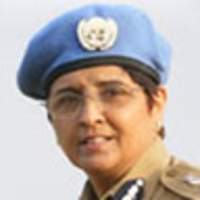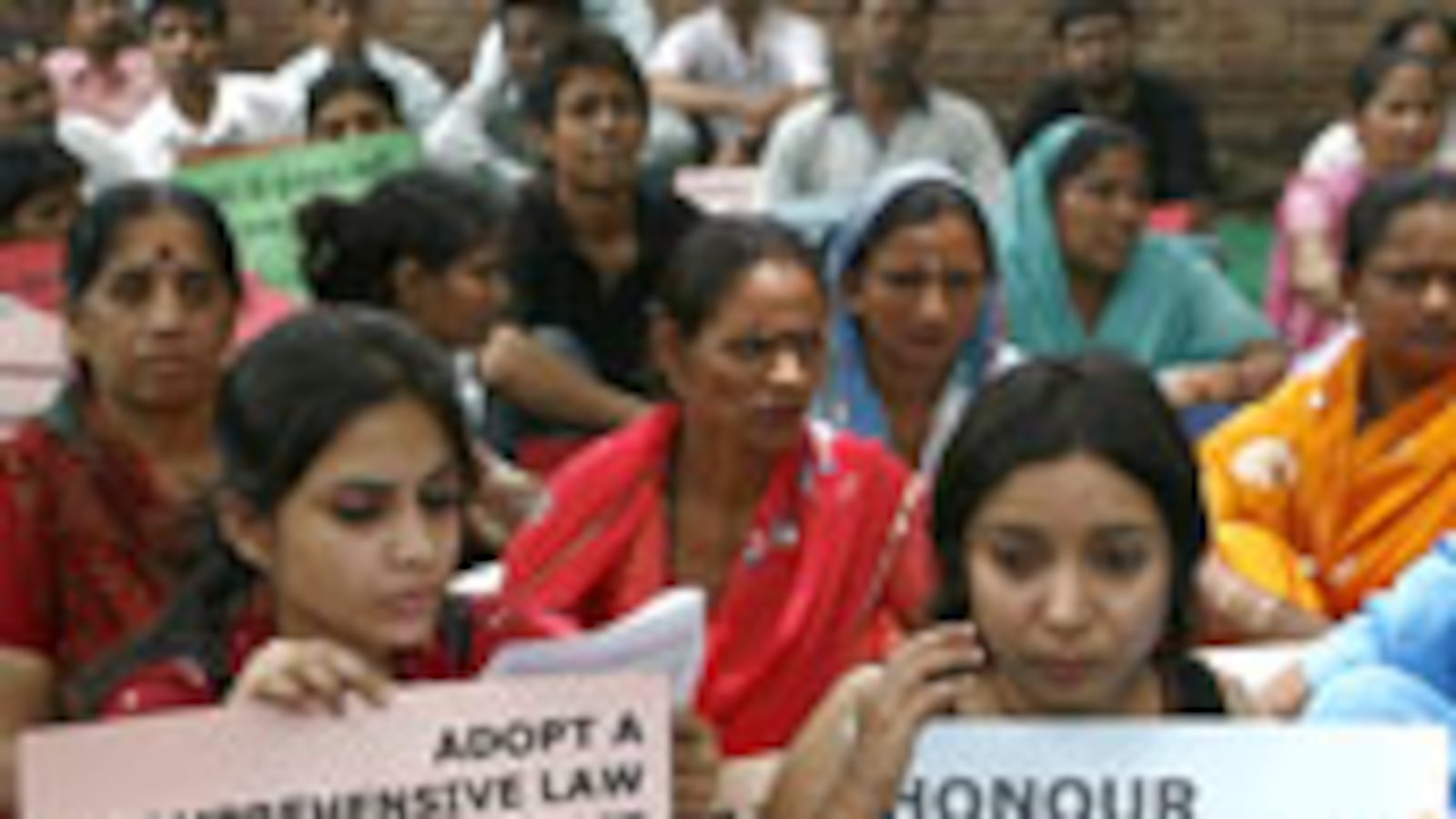
When I was growing up in India, parents arranged the marriages between young men and women. The girl was "shown" to her prospective groom and his family, either overtly or covertly, at the market, at her college, or even in her own home as she served tea to the visiting family.
If the girl was found to be acceptable, the two families would study the horoscopes of the bride and groom-to-be, to see if they had compatible stars. Caste, kin, and status were also part of this equation, since the point of marriage was more about the merger of two families, and less about the romantic union between a man and a woman.
The bride or groom who dared to question the arrangement would be subject to great pressure from relatives or kin. But violence or killing was not the norm.
Today, that has changed dramatically.
Parents and relatives carry out honor killings with the support of village elders, and this older generation is caught in a time warp of caste and creed, unwilling to set the younger generation free of their control.
The country is divided between modern and traditional India, and the clash between the two has led to an act of defiance, and what we call " honor killings."
Let's say a son brings home a wife from a different caste, someone who comes without a dowry. In rural India, where traditions still hold sway, this is a blasphemy of sorts that calls for the most severe and brutal punishment—violence, even death. Daughters who elope and dare to choose their own husbands are also considered dishonorable. For the older generation in rural villages, the idea that women are independent and free to decide for themselves is unthinkable.
The person who decides to marry outside his or her caste, or dares to choose his or her own partner, dishonors the entire community. The only way to restore that tainted honor is to kill the offending couple—an act that serves as a warning to others: Don't question or defy the khaps, the group of elders who traditionally rule the village.
Parents and relatives carry out the honor killings with the support of these village councils, and the older generation is caught in a time warp of caste and creed, unwilling to set the younger generation free of their control.
This is, in part, a battle over money—the dowry matters, partly as compensation for the cost incurred by educating the sons—but it is also about security. If children rebel, and refuse to live with their parents, who will look after the older generation?
Between tradition and modernity, between suffocating control and fear of its loss, between relevance and irrelevance, there is now an all-out war. Members of the urban media and educated civil society want to rein in the rural village councils, but the caste-based khaps are hell-bent on retaining their position.
Power was handed down to the khap panchayats from the British before independence—it suited the colonial power to have the villages handle their own affairs rather than clog up the courts. But times have changed, and members of the educated civil society in India find them repellent, as they defy the law or take it into their own hands.
And so there is this battle between old and new India, and if the self-appointed representatives of the old order prevail, the progress of women in India will be set back several decades.
The politicians, for their part, are caught between the proverbial rock and a hard place as the khaps constitute solid voting blocs, necessary for the politicians to retain power.
The Special Marriage Act in India supports couples who choose to marry outside of caste, religion, or against the wishes of their families. Yet more is required. A law is being considered that would allow the shortening of the 30-day notice period required to get married. The law would also make honor killings a specific offense, so that data can be gathered, allowing authorities to assess the magnitude of the problem.
Hopefully, India will expeditiously put in place legal processes to tackle this menace that affects India's 40 million youth.
But the police force should not wait for a new law to be put on the books. They should summon the courage required to deliver justice. Indian police must make it a priority to arrest the killers, without consideration for politics or voting blocs.
Watch Kiran Bedi talk about how she got control of the notorious Tihar prison.
Kiran Bedi is India's first and highest ranking woman officer. She has had more than 35 years experience on the police force, and has worked with the United Nations as the Police Advisor to the Secretary General in the Department of Peace Keeping Operations. Recipient of the prestigious Ramon Magsaysay Award, also known as the Asian Nobel Prize, Dr. Bedi has authored several books and has been the hosted popular radio and television shows. She has also been a National and an Asian Tennis champion.






